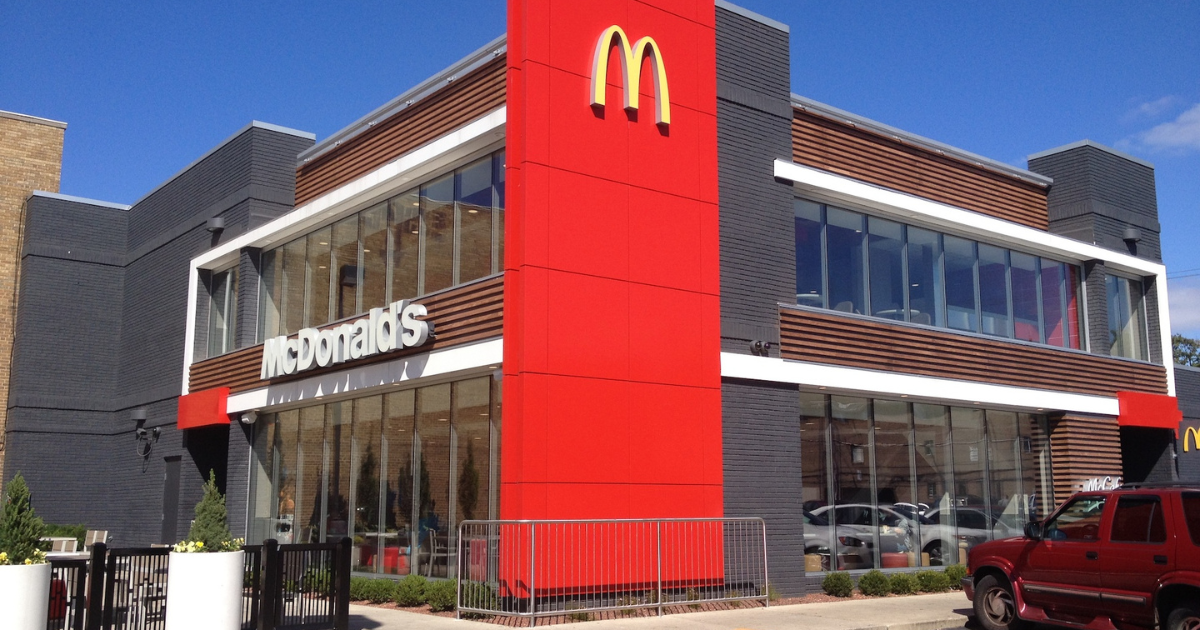
A $10 billion discrimination lawsuit against McDonald’s, filed by business mogul Byron Allen, will go to trial in May after the fast-food giant tried but failed three times to have the case dismissed.
The latest denial occurred September 23 when Judge Fernando Olguin of the U.S. District Court for the Central District of California ruled that McDonald’s failed to meet a relatively high bar for proving Allen’s Entertainment Studios made no reasonable claim of discrimination.
In his latest ruling, Olguin questioned the validity of some of McDonald’s arguments to dismiss the lawsuit.
“McDonald’s apparent refusal to even offer terms for advertising on The Weather Channel makes little business sense given that The Weather Channel has higher ratings and wider distribution than the two [white-owned] comparator networks,” Olguin wrote.
McDonald’s filed two earlier motions to dismiss the case, but those were also denied. The case will now go to trial on May 30, 2023.
In 2021, Allen, who owns Allen Media Group and has an estimated worth of $500 million, filed a $10 billion lawsuit against McDonald’s, saying it has refused to advertise on his networks Entertainment Studios Networks and Weather Group, which include The Weather Channel and Comedy TV.
While McDonald’s has an annual advertising budget of $1.6 billion, Allen claimed that the company only spends $5 million of that total on African American media. He also said that McDonald’s had created an “African American tier” with a smaller budget, a tier in which he believes his TV networks have been categorized.
“This is about economic inclusion of African American-owned businesses in the U.S. economy,” Allen said in a statement.
“McDonald’s takes billions from African American consumers and gives almost nothing back. The biggest trade deficit in America is the trade deficit between white corporate America and Black America, and McDonald’s is guilty of perpetuating this disparity.” McDonald’s in 2021 promised to increase advertising with Black-owned companies from 2 percent to 5 percent of its total budget by 2024.
Last December, Olguin dismissed Allen’s lawsuit, saying that Allen failed to offer enough evidence to show that McDonald’s intentionally discriminated against his media outlets. The court gave Allen’s companies the opportunity to refile the complaint. His attorneys filed two amended complaints against McDonald’s, which survived the fast food giant’s efforts to dismiss the case.
Olguin also rejected McDonald’s argument that Allen’s allegations regarding McDonald’s corporate culture was based on former CEO Chris Kempczinski’s allegedly racist text to Chicago Mayor Lori Lightfoot, where he appeared to blame the deaths of two Black and Latino children on the children’s parents.
“The court finds that plaintiffs plausibly allege that defendant intentionally discriminated against them in refusing to contract,” and would have done business with Allen’s companies “but for” race, a higher bar than the “substantial reason” standard Allen needed to meet under a California state law, according to the ruling.
Loretta Lynch, the nation’s first Black female U.S. Attorney General, who is representing several big discrimination lawsuits against McDonald’s, said the following in a statement:
“The decision has nothing whatsoever to do with the merits of the case, but simply allows Mr. Allen to continue to try, as he has for more than a year now, to substantiate his speculative and conclusory claims through fact discovery.
“We believe the evidence will show that there was no discrimination and that Entertainment Studios’ claims are meritless. Their complaint is about revenue, not race, and plaintiffs’ groundless allegations ignore both McDonald’s legitimate business reasons for not investing more on their channels and the company’s long-standing business relationships with many other diverse-owned partners.”
McDonald’s corporate headquarters are based in Chicago’s West Loop.
In 2020, about 52 Black franchisees filed a $1 billion lawsuit against McDonald’s, accusing it of discrimination. The lawsuit alleges McDonald’s steered Black franchisees to open stores in poorer neighborhoods where sales are lower and costs are higher.
They said the poor locations left them with less money and yet higher scrutiny from corporate headquarters. The franchisees operated more than 200 restaurants in the past decade. Many of the franchisees eventually lost or sold their operations to other businessmen.
The class-action lawsuit has grown to at least 80 plaintiffs.






